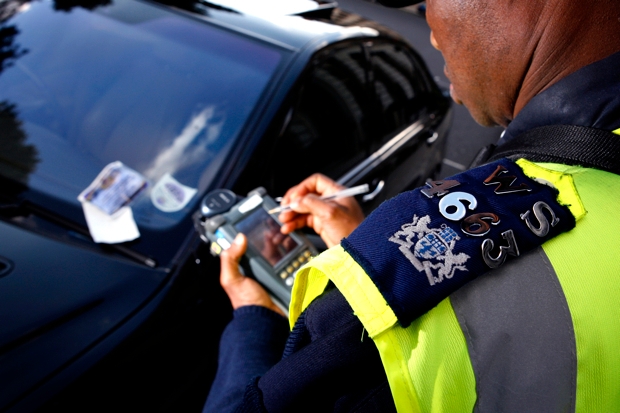I know it’s de rigueur in many cities across Britain but it never ceases to rankle that councils charge people to park outside their own homes.
And paying for the privilege of a parking spot is no guarantee of a space. When I lived in Hampstead, I would often arrive home to find the street chock-a-block with cars, leaving me no choice but to park some considerable distance from my front door.
New research has revealed just how much councils pocket from residents’ parking permits. According to the RAC, which surveyed almost 1,800 motorists and obtained details of council receipts from permits using the Freedom of Information Act, councils have almost doubled the money they collect from householders over the past five years.
In the capital, Haringey council’s revenue rose by 90 per cent from just over £1 million in 2010-11 to £1.95 million in 2014-15. Over the same period it increased the number of parking schemes from 15 to 29.
Ealing council’s income rose by 84 per cent, from £938,988 to £1.73 million. Cambridgeshire county council recorded an 80 per cent rise from £254,328 to £458,387 while Carmarthenshire county council brought in an additional 70 per cent — from £31,820 to £53,935.
Proponents of residents’ parking permits insist that they deter day trippers, shoppers, commuters and tourists from parking on residential roads, but I’m not convinced by that argument. For a start, I will always resent paying to park outside my own house. And surely parking schemes just shift the problem of finding a space to adjacent areas? I’m at a loss to understand how councils justify charging taxpayers these fees.
While the average levy is £59.17, motorists in one area are charged £750 a year, the RAC says. I suspect the typical annual payment in cities like Bristol and London is nearer the higher end of the scale. And that’s before you factor in additional charges such as fees for owning more than one vehicle.
Not every council has a residential parking scheme (although at least six in ten do). Nevertheless, councils raised a whopping £1.45 billion from parking tickets and permits last year, a record amount. This left them with a £700 million surplus after the cost of running their parking services was removed.
There are people who are in favour of residents’ permits. The RAC’s study found that almost half of motorists support residents’ parking schemes despite realising they just shift the problem to another area. Only 17 per cent of those questioned said they were opposed to parking permits, although a third did not have an opinion on the subject either way. I can’t help but think that those in favour rarely use their cars and are therefore not struggling to park on a daily basis. In places where many people commute using public transport, this is surely a factor.
Simon Williams, RAC spokesman, said: ‘Parking is one of the most emotive motoring subjects, and residents’ parking is probably the most polarising subject of all depending, of course, on where you live. Residents without such schemes are often angered when they can’t park near their homes due to the influx of commuters, shoppers and leisure visitors, but many are also annoyed that they have to pay the council for the privilege of being able to park close to their own house or flat.
‘Some commuters on the other hand find it difficult to understand why they shouldn’t be able to park in a residential street for the time they’re at work, knowing that they’ll be gone before most residents return home from work. What can also happen as more schemes are introduced is a domino effect where commuters end up trying to park in the next nearest location to their workplace, shifting the parking problem to another area.
‘While people clearly have very different opinions of residents’ parking zones, local authorities need to take a common sense approach over their use and implementation.’
Quite so.






Comments